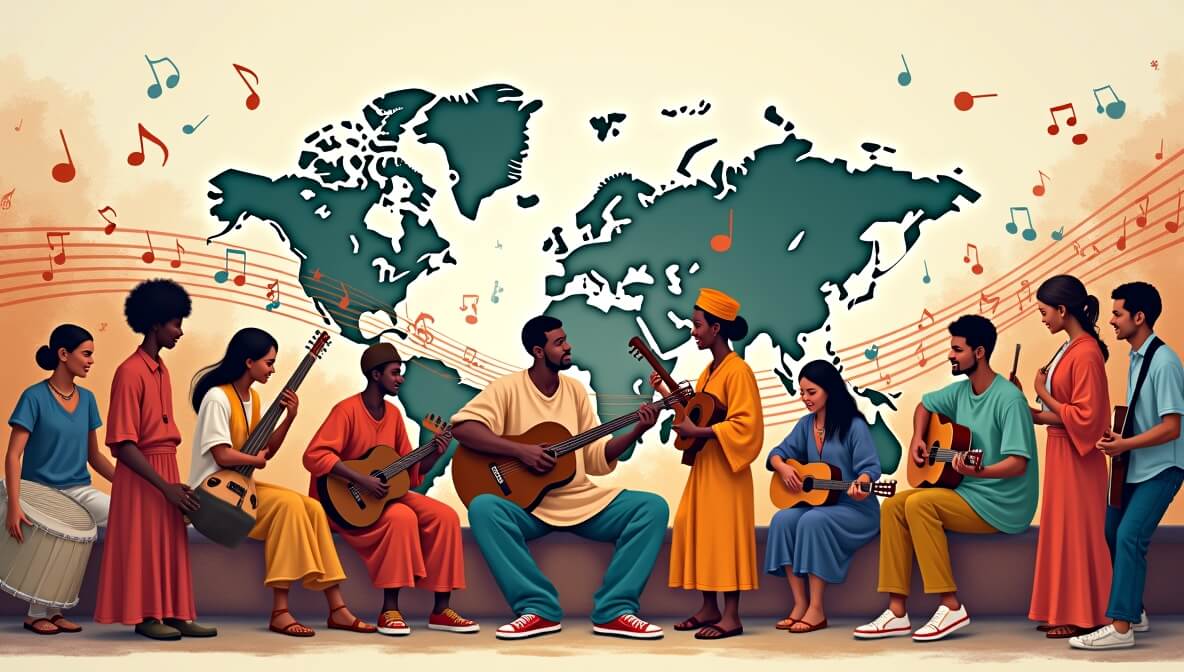August 01, 2025

Music is often heralded as a universal language—a form of expression transcending words, cultures, and borders. But does music truly speak to everyone equally? Can a melody composed in West Africa move someone in Japan? Can a rhythm born in Brazil stir emotions in a listener half a world away?
In this in‑depth article, we'll journey through music’s emotional universality, cultural diversity, scientific power, and the tools bridging global sounds. Along the way, we’ll expertly weave in RocketPages blog resources for further exploration.
At its essence, music communicates emotion—joy, sorrow, tension, serenity—without needing language. A soaring melody can stir tears, a pulsing beat can quicken hearts, even without lyrics you understand.
Neuroscience shows that humans are wired to respond instinctively to rhythm and melody. While your culture shapes interpretation, the physiological and emotional reactions feel deeply human and often universal. For deeper reading, check out The Psychological Benefits of Playing a Musical Instrument.
While emotions can be universal, musical forms vary widely. Think of each genre as a dialect with its own grammar and vocabulary:
These musical dialects may feel foreign at first, but the emotional expression often transcends the unfamiliar structure. For insight into regional genre evolution, see Why Different Cultures Create Different Types of Music.
Certain musical elements seem to resonate across cultures:
Streaming platforms have accelerated this trend—songs once local go viral globally overnight. Artists blending traditional instruments with electronic beats often find fans around the world. Want to learn how to distribute and grow a global fanbase? Check Building Your Fanbase: Strategies for Indie Musicians and Music Distribution Explained.
Simon LeVay and other neuroscientists have shown that music activates brain regions associated with reward, memory, and emotion—regardless of language. A minor key, dissonance, or syncopation can trigger emotional responses even before we consciously listen.
Improvisational forms like jazz and blues serve as “musical conversation”—where musicians communicate across cultural boundaries in real time, bypassing lyrics altogether. Explore this in The Role of Improvisation in Jazz and Blues Music.
Interpretation is deeply cultural:
To truly appreciate a culture’s music, it helps to understand how they listen. RocketPages’ Why Different Cultures Create Different Types of Music provides excellent context.
Tech has made musical cross-pollination seamless:
Other relevant reading: Understanding Audio Interfaces, Studio Monitors vs Headphones for Mixing.
To fully connect with global music, developing perceptual skills helps:
Practice routines and technique-building are especially useful when exploring unfamiliar genres. RocketPages has guides like Practice Makes Perfect and genre-specific tutorials (Advanced Guitar Techniques, Exploring Guitar Styles from Classical to Metal).
Stay up to date with the latest tips, expert insights, product reviews, and step-by-step guides to help you grow, create, and succeed—no matter your industry or passion.